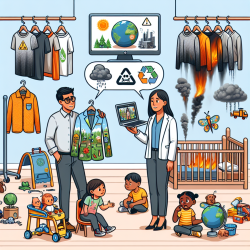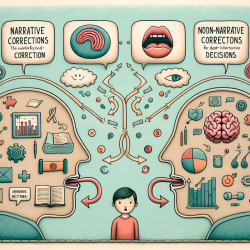Introduction
As childcare providers, you play a crucial role in shaping the health and well-being of children. However, a recent study titled What Do Childcare Providers Know about Environmental Influences on Children’s Health? Implications for Environmental Health Literacy Efforts reveals a significant gap in knowledge about environmental hazards that could be impacting the children in your care. This blog aims to shed light on these findings and provide actionable steps to improve your understanding and practices.
The Research Findings
The study conducted semi-structured interviews with 36 home- and center-based childcare providers in Illinois. The results were eye-opening:
- 92% of providers focused on the physical environment (e.g., play areas, nap spaces) but overlooked toxic exposures.
- Only 25% mentioned environmental toxicants like air quality, water quality, and chemicals.
- 33% acknowledged that air quality could negatively impact health, but many were unaware of other toxicants.
- 42% had never heard the term "children’s environmental health" or were unsure of its meaning.
Why This Matters
Children are uniquely vulnerable to toxicant exposures due to their developing organs and higher intake of air, food, and water relative to their body weight. Exposure to toxicants like lead, phthalates, and volatile organic compounds (VOCs) can lead to severe health issues, including developmental delays, learning problems, and respiratory issues.
Steps to Improve Environmental Health Literacy
Here are some actionable steps to enhance your understanding and practices:
1. Educate Yourself
Start by familiarizing yourself with common environmental hazards. Resources like the CDC's lead poisoning prevention page and the Healthy People 2030 initiative offer valuable information.
2. Conduct Regular Assessments
Regularly assess your childcare environment for potential hazards. This includes checking for lead-based paints, ensuring good air quality, and using non-toxic cleaning products.
3. Implement Safe Practices
Adopt practices that minimize exposure to toxicants. For example, use fragrance-free products, ensure proper ventilation, and avoid using plastic toys that may contain harmful chemicals.
4. Engage with Parents
Communicate with parents about the importance of environmental health and encourage them to adopt similar practices at home. Provide them with resources and tips to reduce toxicant exposure.
5. Advocate for Policy Changes
Advocate for stricter regulations and policies that address environmental health in childcare settings. Your voice can make a difference in creating safer environments for all children.
Conclusion
Improving environmental health literacy among childcare providers is crucial for the well-being of children. By taking proactive steps to educate yourself and implement safe practices, you can significantly reduce the risk of toxicant exposure in your childcare setting.
To read the original research paper, please follow this link: What Do Childcare Providers Know about Environmental Influences on Children’s Health? Implications for Environmental Health Literacy Efforts.










